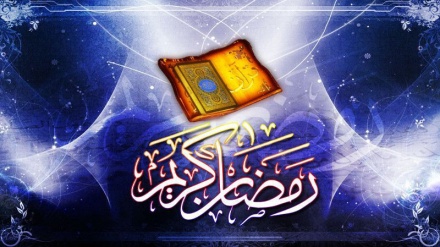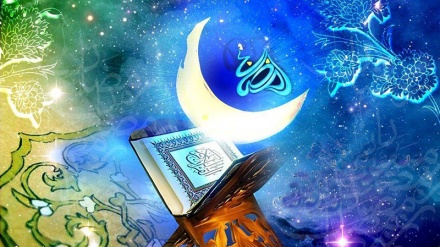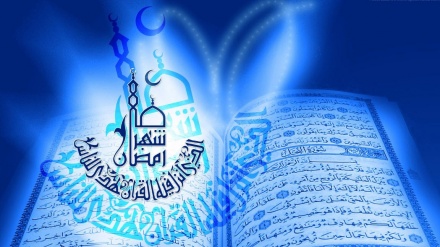Blessed Month of Ramadhan
Welcome to the 16th episode of the series “Blessed Month of Ramadhan”. The month of fasting promotes a spiritual atmosphere in Muslim societies.
The person who has been granted a virtuous life, strives more to earn the satisfaction of the All-Merciful Lord. Thus, such a person, whether male or female feels a sense of purity and joy deep in the soul, which is immeasurable, since he/she finds himself/herself immersed in a never-ending life leading towards progress and prosperity in the real sense of these terms. These are all the signs of a real life. Today on the 16th day of blessed Ramadhan, we will discuss hope.
One of the accomplishments of the blessed month of Ramadhan is strengthening of one’s hope toward divine kindness and forgiveness, and how appropriate it is if we maintain this beautiful spiritual mood throughout our entire life. Several ayahs of the Holy Qur’an make mankind hopeful toward divine generosity and kindness. In Ayah 87 of Surat-al-Yusuf, God says:
“…and do not despair of Allah’s mercy. Indeed no one despairs of Allah’s mercy except the faithless lot.”
Some persons, when faced with setbacks, express despair and frustration, and at times are even ungrateful toward God due to their weakness of faith or non-existence of a solid bond with God. In contrast, those who place full trust in the All-Merciful Lord and His Infinite Power, they will never be disappointed. This is the message to mankind of God Almighty, instilling in them hope and faith.
A certain person called Lobaib, describing an encounter in his life, has said: “A snake bit my hand when I was young. Due to its venom, my hand was paralyzed. After a while, my other hand was paralyzed too. Soon I became blind and dumb. I was bed-ridden. I had lost all of my senses, with the exception of the sense of hearing. No one was aware of my needs and difficulties. A year passed by in this manner. My life was worse than death. One day, a woman approached my wife and asked about my well-being. My wife started to complain, making me realize that she is tired of living with me. At this point, I was heartbroken; however, I still did not despair and maintained my hope in God. I modestly prayed to God and pleaded to God to rescue me. All of a sudden I felt an intense pain in all of my limbs, falling asleep after a while. When I woke up I realized that I could move my hand. I shook my hand, lifted my legs, and was finally able to get up. I looked at the sky. After a year, I managed to see the stars. I was just about to faint, out of joy. I raised my voice and thanked God for His blessings.”
Ayah 97 of Surat-an-Nahl of the Holy Qur’an states:
“Whoever acts righteously, whether male or female, should be faithful, - We shall revive him with a good life and pay them their reward by the best of what they used to do.”
This ayah refers to a virtuous life, which is pure and chaste, without any wrongdoing. As the Holy Qur’an says, life has a precise definition, in contrast to the shallow concept of material life from birth till death. God Almighty, in addition to the material life, considers another life for mankind, as the result of which we grow and develop and achieve our spiritual goals.
Ayah 44 of Surat-al-Anfaal reads:
“O you who have faith! Answer Allah and the Prophet when he summons you to that which will give you life. Know that Allah intervenes between a man and his heart and that toward Him you will be mustered.”
This ayah presents us the correct definition of life. Based on this ayah, God gives a new life to the faithful, who carry out good deeds, in which they reach a better knowledge and understanding in comparison to others. Also, God Almighty grants them the power to progress towards righteousness and abstain from falsehood. This new power and knowledge enables the faithful to understand the truth as it is and to distinguish between righteousness and falsehood. As a result of this insight, the faithful are never attracted to the material world and its false manifestations.
One, who has been granted a virtuous life by God, will never be deceived by Satan, and Satan can no longer tempt them. Such an individual only seeks to please God.
One of the traditions of fasting in the blessed month of Ramadhan is eating Sahari or the late midnight meal before dawn. Performance of the late midnight prayers prior to Morning Adhan or Call for Prayers, and the remarks of the TV presenter, who speaks about the blessings of the break of dawn, mark one of the memorable moments of this blessed month.
Children also like to keep the company of adults, who wake up to eat Sahari, and to worship God. Eating Sahari has been emphasized even if it is a date or a glass of water. According to Islamic narrations, the best Sahari consists of dates.
In many towns and cities of Iran, people wake up two hours prior to break of dawn, and after performing the late midnight prayer, eat Sahari and make intention to fast before the Call for the Morning Prayer. The Sahari meal contains the necessary nutrients and calories to give strength to the fasting person to bear the day’s hunger and thirst. Most people eat warm, cooked food for Sahari. It is often neglected as to what we should eat for Sahari?
Nutritionists note eating Sahari is the most important point. One should not skip Sahari, because eating Sahari is a blessed deed, and has been emphasized in several hadith, which say eat something before the day’s fast, however meagre. Nutritionists say always eat Sahari even if it is just a few bites. If you don’t eat Sahari, your energy will be partly drained throughout the day and the positive impacts of fasting may be erased. As the result of not eating Sahari, the body resorts to partly burning of fat, and one of its side effects is smelly mouth. Some of the other side effects of not eating Sahari are headaches, muscular pain, and reduction of the learning ability, impatience, and exhaustion. Thus, those, who fast, are always recommended to wake up for eating Sahari, especially those who are fasting for the first time.
AS/ME


